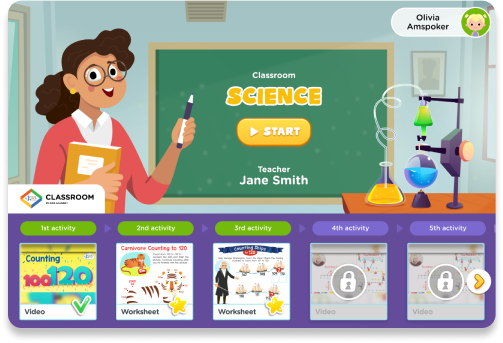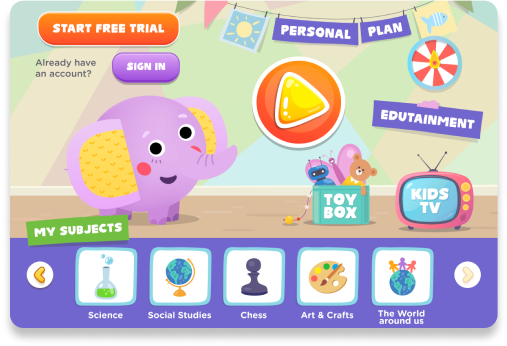Letter tracing skills Worksheets for 8-Year-Olds
3 filtered results
-
From - To
Boost your child's handwriting abilities with our engaging Letter Tracing Skills Worksheets, specially designed for 8-year-olds. Tailored to enhance fine motor skills and letter recognition, these worksheets make learning fun and effective. Each page features exciting tracing activities that gradually improve letter formation and neatness. Ideal for both classroom and home practice, our worksheets incorporate playful elements to keep young learners motivated and entertained. Watch as your child gains confidence and mastery in handwriting with these essential tools. Explore our collection at Kids Academy and set the stage for your child's academic success!
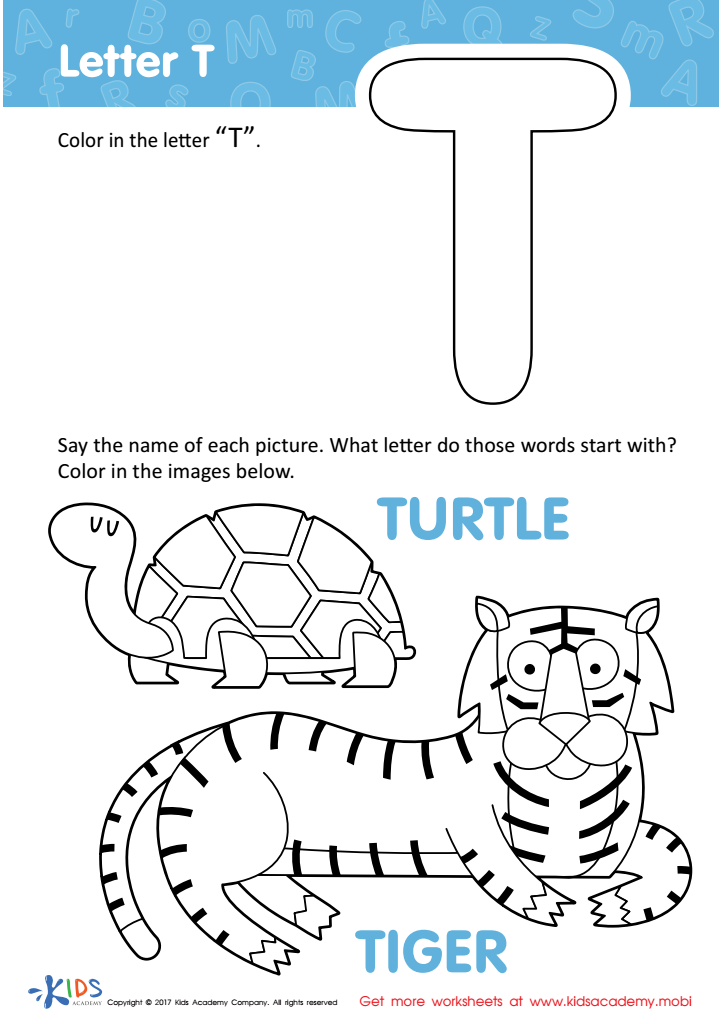

Letter T Coloring Sheet
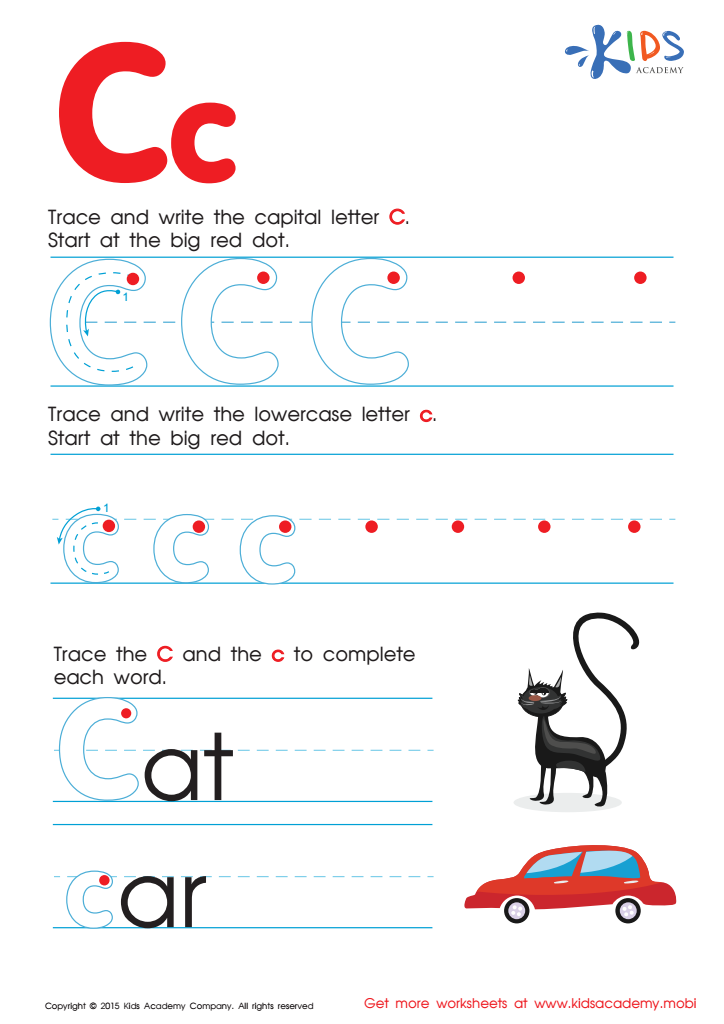

Letter C Tracing Page
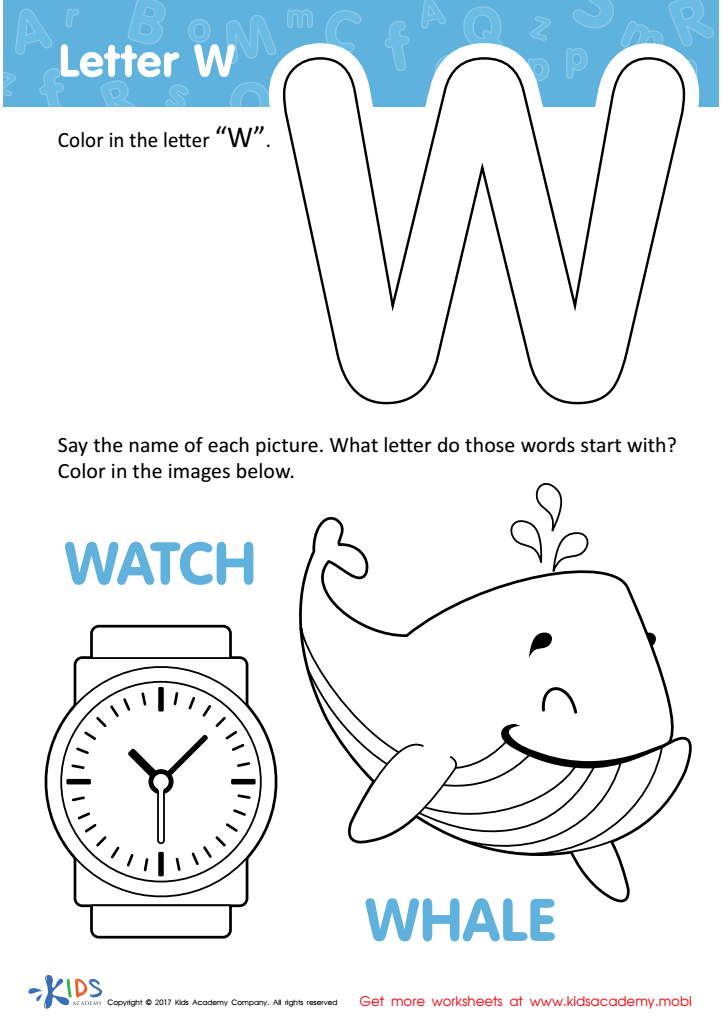

Letter W Coloring Sheet
Letter tracing skills are pivotal for 8-year-olds as they form a cornerstone in early literacy development, affecting both reading and writing abilities. At this age, children transition from basic to more complex writing tasks, and proficiency in letter tracing ensures they develop efficient fine motor skills. These motor skills are fundamental for accurately forming letters and eventually writing legibly, which can significantly impact their academic performance and confidence in expressing their thoughts on paper.
Furthermore, letter tracing enhances cognitive processing and phonemic awareness. As children trace letters, they simultaneously reinforce letter recognition and sound associations, integrating the visual and phonetic patterns of language. This not only aids in reading fluency but also in comprehension, as children better grasp the structure and meaning of words.
Teachers and parents play a crucial role by providing consistent practice and feedback, promoting a smooth and enjoyable learning experience. When proficiency in letter tracing is achieved early, children are more likely to experience less frustration and greater academic success in later years. Additionally, these skills lay the groundwork for future learning, where fluency and accuracy in writing become even more critical for complex tasks. Ultimately, focusing on letter tracing is an investment in a child's educational foundation and lifelong learning journey.
 Assign to My Students
Assign to My Students


















